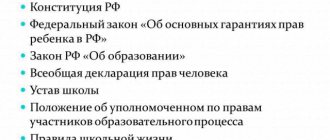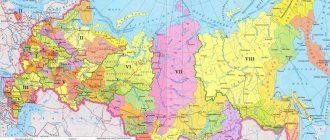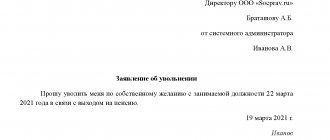Can a child under 14 years old open a bank account?
Article 28 of the Civil Code of the Russian Federation contains a list of transactions that a child aged 6 to 14 years carries out independently. These include:
- small household transactions (purchases in a store);
- transactions resulting in a child receiving gratuitous benefits;
- transactions for the disposal of funds provided to him by parents or third parties with their consent.
Based on these norms, some lawyers take the position that the opening of a bank deposit by a minor child can be attributed to a transaction permitted by this list. This can be considered as a transaction for the disposal of funds provided by the parents to the child for free disposal or a specific purpose. Receiving interest on a deposit in this case is equivalent to a gratuitous benefit, also mentioned in the article. In addition, the Civil Code and the Federal Law on Banks and Banking Activities do not limit the age of the depositor. However, banks do not adhere to such a broad interpretation of the law. According to paragraph 1 of Article 28 of the Civil Code of the Russian Federation, they are guided by the fact that transactions are carried out on behalf of young children by their legal representatives. A child under 14 years of age will not be able to open a bank deposit on his own. This can be done by parents, guardians or adoptive parents in the name of the child.
According to the current legislation of the Russian Federation, a child is a person who has not reached the age of eighteen years (the age of majority) (Article 54 of the Family Code of the Russian Federation).
From the moment of birth, a person acquires by law the ability to have rights
and bear
responsibilities (legal capacity).
Legal capacity
citizen - the ability to have civil rights and bear responsibilities. The legal capacity of a citizen arises at the moment of his birth and ends with death (Article 17 of the Civil Code of the Russian Federation).
However, the real exercise of rights and responsibilities is possible only as the child grows up.
Capacity
citizen - the ability of a citizen, through his actions, to acquire and exercise civil rights, create civil responsibilities for himself and fulfill them (Article 21 of the Civil Code of the Russian Federation).
Every year the capacity
increases and becomes complete by the age of 18, when each person
becomes an adult.
Age: from 0 months to 6 years.
The child is incompetent
, this is explained by the fact that the child, due to his young age, cannot understand and be responsible for his actions.
Has an inalienable right to life (Article 6 of the UN Convention on the Rights of the Child, Part 1 of Article 20 of the Constitution of the Russian Federation).
Acquires the right to citizenship (Article 7 of the UN Convention on the Rights of the Child).
Has legal capacity
according to civil law (Article 17 of the Civil Code of the Russian Federation).
Has the right to a first name, patronymic and last name (Article 7 of the UN Convention on the Rights of the Child, Article 58 of the Constitution of the Russian Federation).
Has the right to live and be raised in a family, to know his parents, to receive from them protection of his rights and legitimate interests (Articles 9, 12 of the UN Convention on the Rights of the Child, Article 54 of the Family Code of the Russian Federation).
The right to use the most advanced health care services and means of treating illnesses and restoring health (Article 24 of the UN Convention on the Rights of the Child).
A bank account may be opened in his name.
Has the right to attend preschool educational institutions (Article 67 of the Federal Law “On Education in the Russian Federation”).
All transactions in his interests are carried out by his parents or legal representatives (Article 28 of the Civil Code of the Russian Federation).
Age: from 6 years to 14 years
The child has partial legal capacity
, that is, he cannot make all transactions, but only those that he needs every day, that is, small household transactions. This means that he can buy any products, stationery, and other things and items in the store. It can also make transactions aimed at obtaining benefits that do not require notarization or state registration. If he cannot conclude a deal, his parents, adoptive parents or guardians can act on his behalf.
Parents, adoptive parents or guardians bear property liability for his transactions, including transactions made by him independently, unless they prove that the obligation was violated through no fault of theirs.
Age 6 years.
From the age of 6 years 6 months, a child has the right to attend school (upon the application of parents, adoptive parents or guardians and with the permission of the founder of the educational institution, he can begin education at an earlier age) (Article 43 of the Constitution of the Russian Federation).
He has the right to independently conclude:
- small household transactions;
- transactions aimed at obtaining benefits free of charge, which do not require notarization or state registration;
- transactions for the disposal of funds provided by legal representatives
(Article 28 of the Civil Code of the Russian Federation).
Age 8 years.
A child can join children's public associations (Article 19 of the Law “On Public Associations”).
From this age, responsibility begins in the form of placement in a special open-type educational institution (Article 15 of Federal Law No. 120 “On the fundamentals of the system for the prevention of neglect and delinquency by minors”)
Age 10 years
From this age the child:
Gives consent to change his first and last name (Articles 59, 134 of the Family Code of the Russian Federation);
Gives consent to his adoption or transfer to a foster family, or to the restoration of the parental rights of his parents (Article 132 of the Family Code of the Russian Federation).
You have the right to express your opinion when resolving any issue in the family that affects your interests (Article 57 of the Family Code of the Russian Federation).
The right to be heard during any judicial or administrative proceedings (Article 57 of the Family Code of the Russian Federation).
Age 11
Responsibility comes in the form of placement in a special closed educational institution for children and adolescents (special school, special boarding school, etc.) with deviant (socially dangerous) behavior (Article 22 of the Federal Law “On Education in the Russian Federation”, Article 15 of the Federal Law Law No. 120 “On the fundamentals of the system for the prevention of neglect and juvenile delinquency”).
Age: from 14 years to 18 years
Legal capacity of a minor:
he has already gained some life experience, he can be aware of and responsible for his actions. Therefore, the law gives him the right to independently manage his earnings, stipends and other income, and to make small household and some other transactions. He can make deposits with credit institutions. He can also exercise the rights of the author of a work of science, literature or art, invention or other result of his intellectual activity protected by law. He can carry out other transactions with the written consent of parents, adoptive parents, and guardians.
Age 14
From this age, a minor is required to have a passport of a citizen of the Russian Federation (Resolution of the Government of the Russian Federation “On approval of the regulations on the passport of a citizen of the Russian Federation”).
From this age, he gives written consent to renounce citizenship of the Russian Federation together with his parents (Article 9 of the Law “On Citizenship of the Russian Federation”).
Can choose his/her place of residence (with parental consent).
He can independently go to court to protect his rights and interests (Article 56 of the Family Code of the Russian Federation).
With the written consent of the parents (adoptive parents or guardians), he has the right to make any transactions (Article 26 of the Civil Code of the Russian Federation).
The right to dispose of his earnings, scholarships and other income (Article 26 of the Civil Code of the Russian Federation).
May exercise the rights of the author of a work of science, literature or art, invention or other result of his intellectual activity protected by law (Article 26 of the Civil Code of the Russian Federation).
Has the right to change his name, surname and patronymic (Article 58 of the Federal Law “On Acts of Civil Status”), but only with the consent of his parents.
Has the right to make deposits in credit institutions and dispose of them (Article 26 of the Civil Code of the Russian Federation).
It is allowed to enter work to perform light labor that does not cause harm to health during free time from study, subject to the following conditions:
- be a student;
- work is performed only in free time from study and does not interfere with the learning process;
- the consent of the parent (legal representative) and the guardianship authority has been obtained (Article 63 of the Labor Code of the Russian Federation).
Has the right to demand the cancellation of adoption (Article 142 of the Family Code of the Russian Federation).
Has the right to drive a bicycle while driving on the roads.
Can join youth public associations (Article 19 of the Law “On Public Associations”).
It must be remembered that:
From this age, a minor independently bears property liability for transactions made by him (Article 26 of the Civil Code of the Russian Federation).
Subject to criminal liability for certain crimes (Article 20 of the Criminal Code of the Russian Federation):
- murder;
- intentional infliction of grievous bodily harm;
- intentional infliction of moderate harm to health;
- kidnapping, rape;
- sexual assault;
- theft;
- robbery;
- robbery;
- extortion;
- unlawful taking of a car or other vehicle without the purpose of theft;
- intentional destruction or damage to property under aggravating circumstances;
- terrorist attack;
- hostage taking;
- knowingly false report about an act of terrorism;
- aggravated disorderly conduct;
- vandalism;
- theft or extortion of weapons, ammunition, explosives and explosive devices;
- theft or extortion of narcotic drugs or psychotropic substances;
- rendering vehicles or means of communication unusable;
- encroachment on the life of a statesman or public figure;
- attacks on persons or institutions enjoying international protection;
- act of international terrorism.
Age 15 years.
At this age, the child has the right to agree or disagree to medical intervention (Article 54 of the Federal Law “On the Fundamentals of Protecting the Health of Citizens in the Russian Federation”).
Has the right to enter into an employment contract to perform light work that does not cause harm to health if:
- received general education;
- continues to master the general education program in a form of education other than full-time;
- left a general educational institution before receiving a general education with the consent of the parent (legal representative), the commission for minors and the protection of their rights and the local education authority (Article 63 of the Labor Code of the Russian Federation).
Age 16 years.
A minor can be declared fully capable (emancipation) if he works under an employment contract, including a contract, or, with the consent of his parents, adoptive parents or guardian, is engaged in entrepreneurial activities (Article 27 of the Civil Code of the Russian Federation).
May be a member of a cooperative (Article 26 of the Civil Code of the Russian Federation).
Has the right to drive a motorcycle, scooter and other motor vehicles.
Has the right to conclude an employment contract (you can work no more than 35 hours a week) (Article 92 of the Labor Code of the Russian Federation).
Can get married, but if there are good reasons (pregnancy, birth of a child) and with the permission of local governments (Article 13 of the Family Code of the Russian Federation).
Having reached this age, you need to know and remember that:
from this moment the minor is subject to administrative liability; bears criminal liability for any crimes.
There is an obligation for young men to undergo training in the basics of military service (Articles 8, 13 of the Law of the Russian Federation “On Military Duty and Military Service”).
Age 17
Young men have an obligation to register for military service (pass a commission at the military registration and enlistment office and receive a registration certificate) (Article 9 of the Law of the Russian Federation “On Military Duty and Military Service”).
So, the child is 18 years old!
Congratulations! Now he is an adult, which means that he becomes fully capable and can, through his actions, acquire any rights and impose any obligations on himself.
Can a child under 14 years old get a bank card?
According to Russian legislation, children from 6 to 14 years old can receive a bank card in the form of an additional card attached to the account of one of the parents. In accordance with Article 28 of the Civil Code of the Russian Federation, young children themselves cannot make such transactions. Therefore, parents, guardians or adoptive parents act on their behalf. A child between the ages of 14 and 18 can already manage their own income, for example, a scholarship. The bank will issue a main bank card for him with the consent of the parent or other legal representative.
Where to apply for protection of children's rights
To protect the rights of minors in Russia, associations such as the Child Protection Service, social protection authorities, the prosecutor's office and others have been created and operate.
Among the main actions to protect rights, one can track such as ensuring it at the legislative, regional and other levels.
The main laws that regulate the rights of minors, the rights of minors in Russia:
- Declaration of the Rights of the Child. Convention on the Rights of Minors.
- Federal Law “On Basic Guarantees of the Rights of the Child in the Russian Federation”
- Federal Law “On Guardianship and Trusteeship”, “On the Fundamentals of the System for the Prevention of Neglect and Juvenile Delinquency.
- Decree of the President of the Russian Federation “On additional measures to ensure the rights and protection of minor citizens of the Russian Federation.
Did you like this article? Please rate and tell your friends. Perhaps your link will be of real benefit to them.










